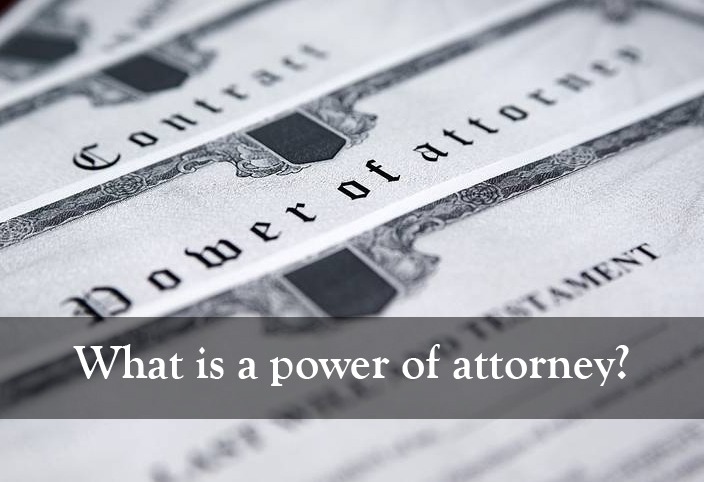New Florida Power of Attorney Act
On October 1, 2011, the new Florida Power of Attorney Act went into effect. This is a brand new law that will completely replace and supersede Florida’s current law governing powers of attorney executed by individuals and will apply to powers of attorney created on, before, or after October 1, 2011.
The top six things you need to know about the new Florida Power of Attorney law:
1.Signing formalities are crucial. The new law requires a person making a Florida power of attorney (called the “principal”) to sign the document in front of two witnesses and a Notary Public (note that the Notary can act as one of the two witnesses). The new law also provides that powers of attorney properly executed under the laws of another state will be recognized in Florida; however, a third party located in Florida that is asked to accept an out-of-state power of attorney can require a legal opinion as to the document’s validity under the other state’s laws.
2.Be aware of the new rules governing multiple agents. Under current Florida law, if two or more agents are named in a power of attorney to act at the same time, then they must act unanimously, and if three or more agents are named, then they must act by majority vote. This is not so under the new law – instead, the new law provides that multiple agents named to act at the same time can act independently of each other unless the power of attorney specifies otherwise.
3.Filing for divorce triggers revocation of a spouse’s authority. The mere filing of a petition for divorce will terminate the authority of the principal’s spouse to act under the principal’s power of attorney.
4.Powers of attorney will no longer be allowed to “spring” into action. Springing powers of attorney will no longer be allowed to be created in Florida, instead all new powers of attorney will be effective immediately. But note that springing powers of attorney signed before October 1, 2011 will remain valid.
5.Specific authority must be granted. The following catch-all phrase that commonly appears in powers of attorney can no longer be relied on:
“In general, to do all other acts, deeds, matters, and things whatsoever in or about my estate, property, and affairs, whether or not particularly or generally described and any and all other acts, deeds, matters, and things not particularly or generally set forth herein, as fully and effectively to all intents and purposes as the undersigned could do if personally present; and to employ, retain in employment and discharge such persons (both professional and otherwise) as my Agent may deem necessary to assist in the performance of any of the foregoing.”
Instead, a power of attorney must list with specificity the authority being granted.
6. An agent has the duty to preserve the principal’s estate plan. Under the new law an agent acting under a power of attorney has the mandatory duty to try to preserve the principal’s estate planning goals to the extent known by the agent.
These are only a few of the highlights of Florida’s new Power of Attorney law. To lean more about the new law and whether your old document ought to be updated, contact our office for a consultation.
Debra G. Simms

 If we spare even a fraction of the time we spent on earning all that money and building those assets, we would be able to ensure that it stays in the right hands even when we are not around to look after them. The federal law provides multiple legal options for you to choose form in order to facilitate a judicious planning of your property and assets. We are here to help you understand the various legal rights of a valid US citizen in managing his property and estate while he/she is alive and also post his/her demise.
If we spare even a fraction of the time we spent on earning all that money and building those assets, we would be able to ensure that it stays in the right hands even when we are not around to look after them. The federal law provides multiple legal options for you to choose form in order to facilitate a judicious planning of your property and assets. We are here to help you understand the various legal rights of a valid US citizen in managing his property and estate while he/she is alive and also post his/her demise. There are several circumstances, wherein an individual is unable to manage his property or finance related matters for a specific length of time, owing to a prolonged overseas trip or a major health condition that renders him physical incapable of doing so. A power of attorney is just the type of legal provision that helps you to delegate the responsibility of your property and finance management in the event of your prolonged absence.
There are several circumstances, wherein an individual is unable to manage his property or finance related matters for a specific length of time, owing to a prolonged overseas trip or a major health condition that renders him physical incapable of doing so. A power of attorney is just the type of legal provision that helps you to delegate the responsibility of your property and finance management in the event of your prolonged absence. At the law firm run by Debra G. Simms and her team of experienced and qualified lawyers, you will be sure to get the best in legal and paralegal services from drafting of important legal documents like wills, living wills, different types of trust deeds, powers of attorney, probates, estate planning, guardianship and elder law services, and much more.
At the law firm run by Debra G. Simms and her team of experienced and qualified lawyers, you will be sure to get the best in legal and paralegal services from drafting of important legal documents like wills, living wills, different types of trust deeds, powers of attorney, probates, estate planning, guardianship and elder law services, and much more.